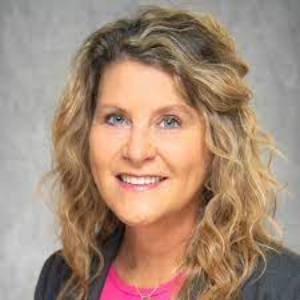Title : The integration of interprofessional simulation education (IPSE) into the master’s of science in nursing curriculum at a midwestern college
Abstract:
Colleges strive to implement quality educational experiences for students to attain the attributes necessary to provide safe and collaborative patient care as part of interprofessional teams. With increased scrutiny over healthcare and patient satisfaction through the use of pay for performance satisfaction surveys and other requirements placed by the national government, health care professionals as well as the government have an increased motivation to create effective education that equips students with the necessary tools to navigate the health care arena. More opportunities to practice collaborative techniques are needed in the Master’s preparation of nurses due to the increased need to provide quality health care to patients and groups. Interprofessional simulation education is an effective method to teach teamwork skills. Kolb’s Experiential Learning theory provided the structure for the implementation and planned integration of interprofessional simulation education into the Master’s level nursing curriculum of a Midwestern College. The PICO question that guided this project is: Does the graduate nursing student experience an increase in interprofessional knowledge, skills and attitudes when exposed to interprofessional simulation education and interprofessional collaboration education modules? The literature supported the use of IPSE and contained information about IPSE delivery and settings. Statistical data as well as qualitative evidence have repeatedly indicated that increased collaboration and communication not only reduce the number of clinical errors, but also increase satisfaction among health care professionals and with the patient population (Agency for Healthcare Research and Quality [AHRQ], n.d.). Current evidence suggests that there are theoretical and conceptual barriers to collaborative practice. Unfortunately students studying to become health care professionals rarely have the opportunity to interact with one another to learn effective communication and collaborative practices (Smithburger et al., 2013). As healthcare reform intensifies, IPE is important to health care due to the need to collaboratively and effectively care for patients. The majority of institutions of higher learning are attempting to integrate simulation into their curricula. IPE is not new to higher learning and in fact, was first encouraged in 1988 as noted in the World Health Organization’s report, Learning Together to Work Together for Health (World Health Organization [WHO], 1988). Rosenfield, Oandasan, and Reeves (2011) published a recommendation that many medical schools should be including IPE into their curriculum as early as year 1. Delunas and Rouse (2014) noted that most health professions students, specifically medical students and nursing students have a less than favorable attitude towards IPE. This fact, compiled with the thought that some programs do not teach or reinforce positive collaborative behavior, is alarming when considering the potential detriment it could have on future patient care. Team STEPPs is a framework to optimize team performance across the health care delivery system and serves as an effective vehicle within a simulation setting to convey topics in a large or small group setting. The content is evidence based and has four very teachable and learnable skills: communication, leadership, situation monitoring, and mutual support.
Audience Take Away:
• The importance of the use of simulation in nursing education.
• How to integrate and support a IPSE program.
• How TeamSTEPPS strategies can increase student knowledge and support of interprofessional collaboration.
• The Team STEPPs strategies of mutual support and communication will be discussed and through interactive strategies the audience will be able to apply the content presented to their own roles. Lessons learned about implementation will be imparted such as the need for earlier communication between health professional faculty and a need for more focus on the change process and implementation. Additional strategies to help participants foster a positive regard to working in teams and collaborative care as well as writing a collaborative plan of care will be provided and discussed in an interactive learning modality



